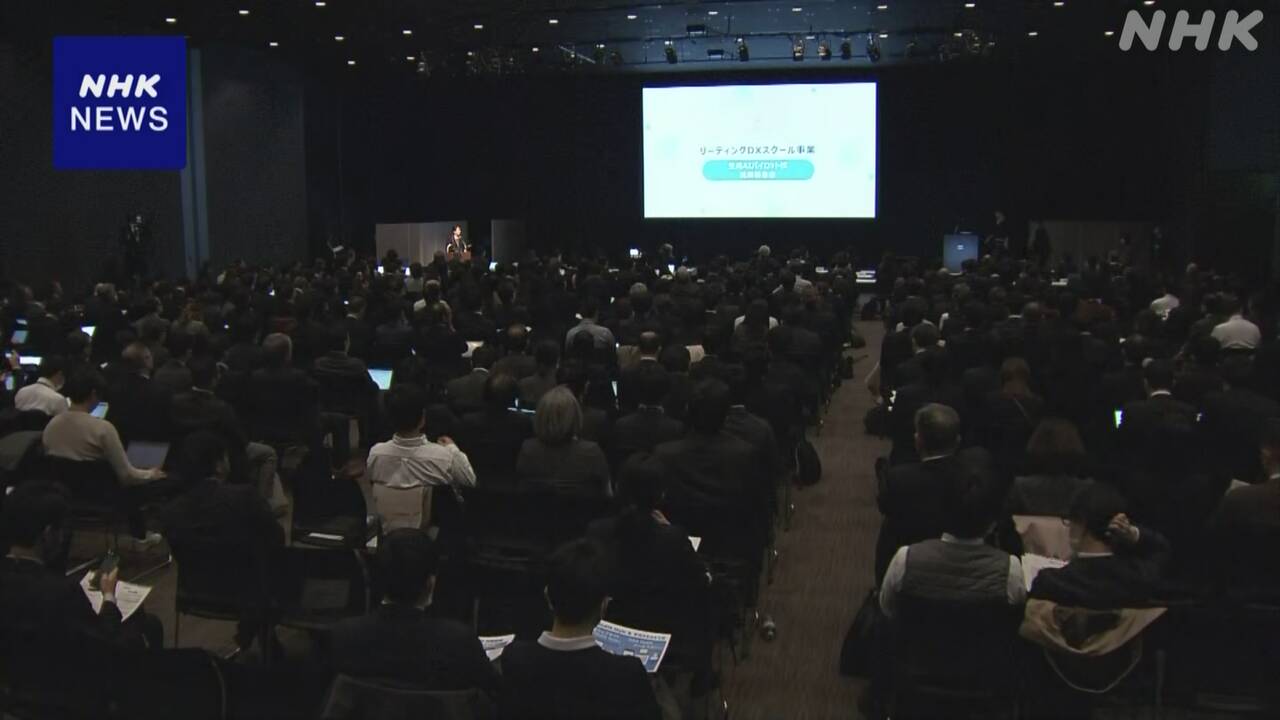The first meeting was held to report the results of a school promoting the use of generative AI in educational activities, and examples of initiatives such as dialogue in English classes and reducing the burden on teachers were reported.
In October last year, the Ministry of Education, Culture, Sports, Science and Technology designated 52 schools in 37 local governments, including public elementary, junior high, and high schools that are working on the use of generative AI, as pilot schools and is collecting advanced examples for effective education. Masu.
On the 20th, each school held its first results reporting session, with approximately 300 participants including teachers and administrators.
Among these, a person in charge at an elementary and junior high school in Tsukuba City, Ibaraki Prefecture found that when they interacted with a generative AI that set roles and conditions during English classes, they found that it had the effect of increasing student independence. I reported it.
Additionally, a person in charge of a junior high school in Kasugai City, Aichi Prefecture, explained that by using generative AI to create documents and training materials for parents, the workload was reduced, especially for busy vice principals.
We heard comments from the schools that gave presentations, such as ``It's important to make full use of generative AI as a tool to achieve your goals'' and ``It's important to have outside cooperation from experts and companies.''
Last July, the Ministry of Education, Culture, Sports, Science and Technology published interim guidelines regarding the use of generative AI in schools, indicating appropriate and inappropriate examples, and the use of generated AI will be based on reports from each school in the future. Our policy is to examine situations where this is effective and consider measures.

